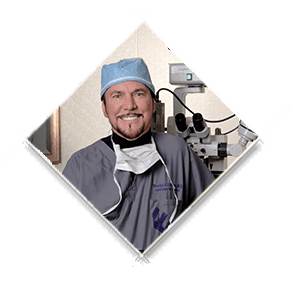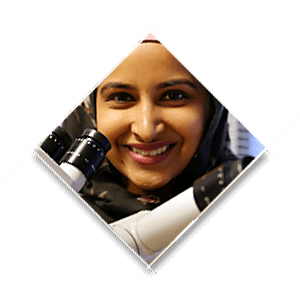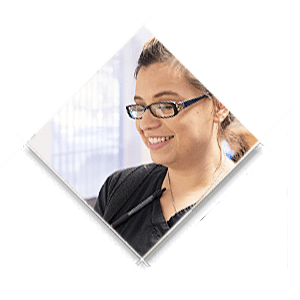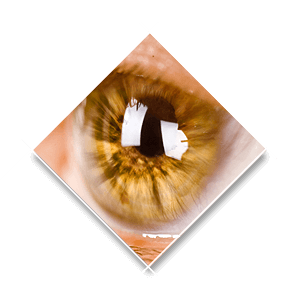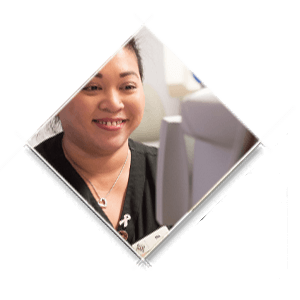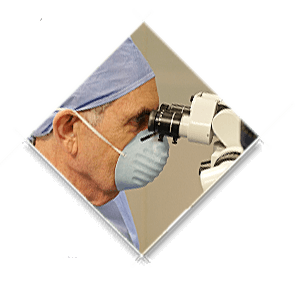Vision Quest ophthalmologist Wesley K. Herman, M.D. grew up on a farm in North Dakota. Farm-to-table was a way of life for his family. When he was young, his dad and uncles were into horticulture, organic production, conservation and sustainability. They were stewards of the land. This way of life has stayed with Dr. Herman.
When he was 18, he helped his cousin build the very first Organic Health Food Store in North Dakota. During the process, he learned a lot about the quality of foods, the shortcuts and hype in that industry.
During his medical school education, he was fortunate to have clinical and physician mentors who were interested in nutrition. The University of North Dakota School of Medicine had one of the first Nutrition Centers for research and education in the United States. It was a great resource. He learned, to paraphrase Hippocrates that “All medicine is food, but not all food is medicine!” It seemed an epiphany to him that we needed to classify food as organic or health food!
Nutrition & Ophthalmology
Over Dr. Herman’s career he has had the opportunity to counsel his ophthalmic patients in both eye care and ways to live a healthy lifestyle, especially those with:
- Nutritional challenges
- Diabetes
- Lap bands or gastric bypasses
- Inflammatory problems
- Digestive issues
- Lack of knowledge about selecting the best foods as medicine
“This is our mission as physicians and leaders of an extended health care team,” says Dr. Herman. “We must be knowledgeable resources for our peers and patients.”
Example: Diabetes
Diabetes is perhaps the best model. Most doctors will not prescribe a medicine to manage blood sugar levels without nutritional counseling. Likewise, most would not do so without a means of measuring the efficacy of the treatment. “What if we were not even certain if the prescription we ordered contained the ingredients listed?” asks Dr. Herman. “And, what if we had no means of actually determining and proving bioavailability of our medicines or the purity of their origin?”
In the supplement industry, this level of uncertainty is where we have been for most of Dr. Herman’s career. He has followed the work of researchers who have dedicated their lives to trying to measure the wide spectrum of carotenoids, generally known to be antioxidants, vital to EVERY living cell.
Carotenoids & Blue Light
To the eyes, carotenoids are vital for filtering the toxic blue light that most of us believe is directly connected to macular degeneration. An albino child’s greater risk of blindness from the lack of any pigmentary protection perhaps suggests the connection to higher risk factors in lightly pigmented adults. These patients must wear specifically designated bandwidth filtration blue light protection to supply an external barrier. Post cataract patients should do the same.
Nutrition & Eye Health
The value of quality food and quality food supplementation is well accepted. The AREDS studies illuminated that fact to eye physicians clearly. Yet how many times have we heard from our patients that their PCP or retinal doctors have said:
- “You are likely just peeing them out in your urine, so why take them?”
- “Try these, but we are not sure they will help!”
- “Use ONLY this brand because it was in the study!”
However, be aware that the exact ingredients of many studies are NOT the same as their generic progeny. Most nutraceuticals have not been asked to prove content, efficacy or bioavailability! Nor are they required to prove origin or purity to anyone. We expect more of our pet food.
Testing at Vision Quest
The doctors at Vision Quest have run the race. We have learned to test urine and blood over the years, but for antioxidants these tests are costly and slow and difficult to standardize. We have sought to use the best, purest and most bioavailable products available using the results from these tests.
One company has stood the test of time. Pharmanex was, until recently, the only nutraceutical source listed in the PDR. To do that, they had to prove content, purity and bioavailability. Pharmanex also introduced the concept of nano technology. (Dr. Herman actually credits this idea to his 92-year-old mom for telling him as a child to “Chew your food or you will not get the value of it.”) Food in general must be made very small to be absorbed in the tiny microvilli of the small intestine. Humans do not have a gizzard or multiple stomachs’.
But benefit was still hard to measure. We lacked a simple diabetes-like test that could easily track real absorption and thus even the potential for bioavailability. The blood however, is actually not the target we want to measure. Like the Hemoglobin A1c test monitoring for diabetes, we needed a cellular level test as the target!
For nutraceuticals, we have not had such a test – until now.
The Pharmanex BioPhotonic Scanner
From the initial work of a leading university eye hospital, Pharmanex has created and introduced the BioPhotonic Scanner. Every organic molecule has an optical signature the BFS uses Raman Spectroscopy to see that signature. Vision Quest has implemented the use of the Pharmanex BioPhotonic Scanner into the daily routine of our ophthalmology practice. The measurement of the carotenoid level by the Pharmanex BioPhotonic Scanner is a convenient and useful measure of cellular carotenoid concentration. It provides a good indication of the antioxidant status and oxidative stress in the body, specifically regarding those important to visual health.
For many years, Vision Quest has been recommending the use of quality food and food grade supplements for our patients. Now we have a cutting-edge testing tool that is easy to operate and can accurately measure carotenoid scores levels in just 30 seconds through Raman Spectroscopy.
Sometime in the very near future, we will use this technology while grocery shopping. We will be able to determine the presence and levels of toxins and nutrients in most foods with a portable scanner. We will determine the presence of gluten or the shelf life of an apple. Every biologic molecule has a unique optical signature! Raman spectroscopy will make this happen.
How the BioPhotonic Scanner Helps Patients
Before we incorporated the use of the Pharmenex BioPhotonic Scanner into our practice, our team did not have the technology available to accurately determine the effectiveness of the patient’s daily diet or supplementation. We can now:
- Measure the usefulness of dietary and nutraceutical bioavailability
- Accurately test every antioxidant vitamin product and regimen to determine effective tissue (cellular) accumulation
Most of our patients are already ad-libbing their nutritional products and are very delighted to have the chance to actually determine the real value of their effort. And they are very grateful for factual readings and advice.
The scanner measures the carotenoid level with grades of F to A. If the patient’s carotenoid scores are below 50,000, we encourage our patients to increase their daily consumption of specific quality fruits and vegetables. We also recommend the use of dietary supplements until the patient can maintain scores in an acceptable range to assist in cellular protection from free radical damage.
The Pharmanex scanner certified products that we recommend to our patients are of the highest quality and are guaranteed to be bioavailable. If they do not raise the patient’s cellular carotenoid scores within 6 months of consistent use, the patients are entitled to a full refund from the manufacturer.
We believe we are providing a great service to our patients!
If you are considering or currently taking dietary supplementation for antioxidant enhancement, the team at Vision Quest is confident that this program will be beneficial for you. Contact Vision Quest at (214) 361-1443 or click here for more information on Antioxidant Content of Foods.

